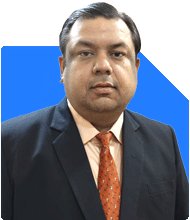Hello Sir,
I am 43 year old, having investment in
1. Own House-No Loan
2. MF holding 14.0 Lac,
3. FD 44.0 Lac,
4. Pure Gold 40.0 Lac,
5. PPF 5.0 Lac,
6. EPF 27.5 Lac,
7. NPS 9.0 Lac
8. Bank Account 10.0 Lac
9. Monthly SIP 44000 Rs [Multicap, Two Mid Cap, Two Small Cap, Large and Mid Cap]
10. Term Plan 50.0 Lac
My child is 16 years old, i need your advice for my child education, marriage as well as my retirement.
Ans: You have built a very strong foundation at 43. Own house without loan, good savings in FD, gold, EPF and mutual funds – this shows discipline and stability. Many people at your age struggle with liabilities. You are in a safe position. Now we must organise it properly for your child’s higher education, marriage and your retirement.
» Current Financial Position – Overall Assessment
– Own house without loan gives you emotional security.
– Total financial assets are well diversified across FD, gold, PF and mutual funds.
– Large allocation to FD and gold gives safety but lower long-term growth.
– Mutual fund exposure is moderate and SIP is healthy at Rs 44,000 per month.
– Term cover of Rs 50 lakh is on the lower side considering child age and future costs.
You are financially stable. Now the focus must shift to growth and protection.
» Child Higher Education – 2 to 4 Year Planning Window
Your child is already 16. That means higher education funding is very near.
– Education corpus should not depend on equity-heavy assets now.
– Avoid taking high risk in small and mid caps for this goal.
– Start segregating money required in next 2–3 years into safe instruments like short-term debt or high-quality fixed income.
– Do not disturb EPF and NPS for education unless absolutely necessary.
If needed, you can use part of FD and bank balance. Education goal is priority one.
Important: Avoid selling equity mutual funds in panic. If you sell equity funds:
– LTCG above Rs 1.25 lakh is taxed at 12.5%.
– STCG is taxed at 20%.
Plan redemption carefully and gradually.
» Child Marriage – Long-Term Goal (8–12 Years)
Marriage is not urgent. So this can stay in growth assets.
– Continue SIP.
– You are currently investing across multicap, midcap, smallcap and large-midcap. That is fine for long term.
– But review allocation. Too much mid and small cap increases volatility.
Keep marriage goal in a separate mutual fund bucket. Track it independently.
» Retirement Planning – The Most Important Goal
You are 43. You have around 15–17 years for retirement.
Current retirement assets:
– EPF Rs 27.5 lakh
– NPS Rs 9 lakh
– PPF Rs 5 lakh
– Mutual Funds Rs 14 lakh
This is a decent start but not enough for long retirement life.
You must:
– Increase retirement-focused equity allocation gradually.
– Continue EPF contribution strongly.
– Continue NPS for tax and discipline, but do not depend fully on it.
– Increase SIP gradually every year, at least 5–10% step-up.
At your age, growth is still required. Too much FD and gold will reduce long-term wealth creation.
» Asset Allocation Correction
Current allocation shows heavy weight in:
– FD Rs 44 lakh
– Gold Rs 40 lakh
Gold and FD together form a very large portion. Gold does not give income. FD gives safety but post-tax returns are moderate.
Suggestion:
– Do not exit gold fully. Keep reasonable allocation.
– Slowly reduce excess FD over next few years and move towards diversified equity mutual funds for long-term goals.
– Keep emergency fund of 6–9 months in bank and FD. Beyond that, excess idle cash should work harder.
» Insurance Review
Term cover of Rs 50 lakh is low.
– Considering child age and inflation in education, you should review and increase total term cover.
– Aim for at least 10–12 times annual income protection.
Health insurance is not mentioned. If not adequate, increase family floater coverage.
» Risk Management & Behaviour Discipline
– Do not frequently change funds based on market noise.
– Review once a year.
– Keep goals separated mentally and financially.
Your SIP structure is good. Just rebalance and align with time horizon.
» Tax Awareness
– Equity mutual fund gains above Rs 1.25 lakh (long term) are taxed at 12.5%.
– Short term gains are taxed at 20%.
– Debt fund gains are taxed as per slab.
So plan withdrawals smartly. Do not redeem in one single financial year if avoidable.
» Action Plan – Next 12 Months
– Separate education corpus immediately.
– Increase term insurance.
– Gradually rebalance FD surplus into long-term mutual funds.
– Step-up SIP yearly.
– Create clear written retirement number target.
– Review NPS asset allocation to ensure enough equity exposure.
» Finally
You are not late. You are actually ahead in discipline and savings. Only re-alignment is required.
Education funding needs safety now.
Marriage needs growth.
Retirement needs structured and increasing equity exposure.
If you implement these corrections calmly, you can achieve all three goals without stress.
Best Regards,
K. Ramalingam, MBA, CFP,
Chief Financial Planner,
www.holisticinvestment.in
https://www.youtube.com/@HolisticInvestment





























